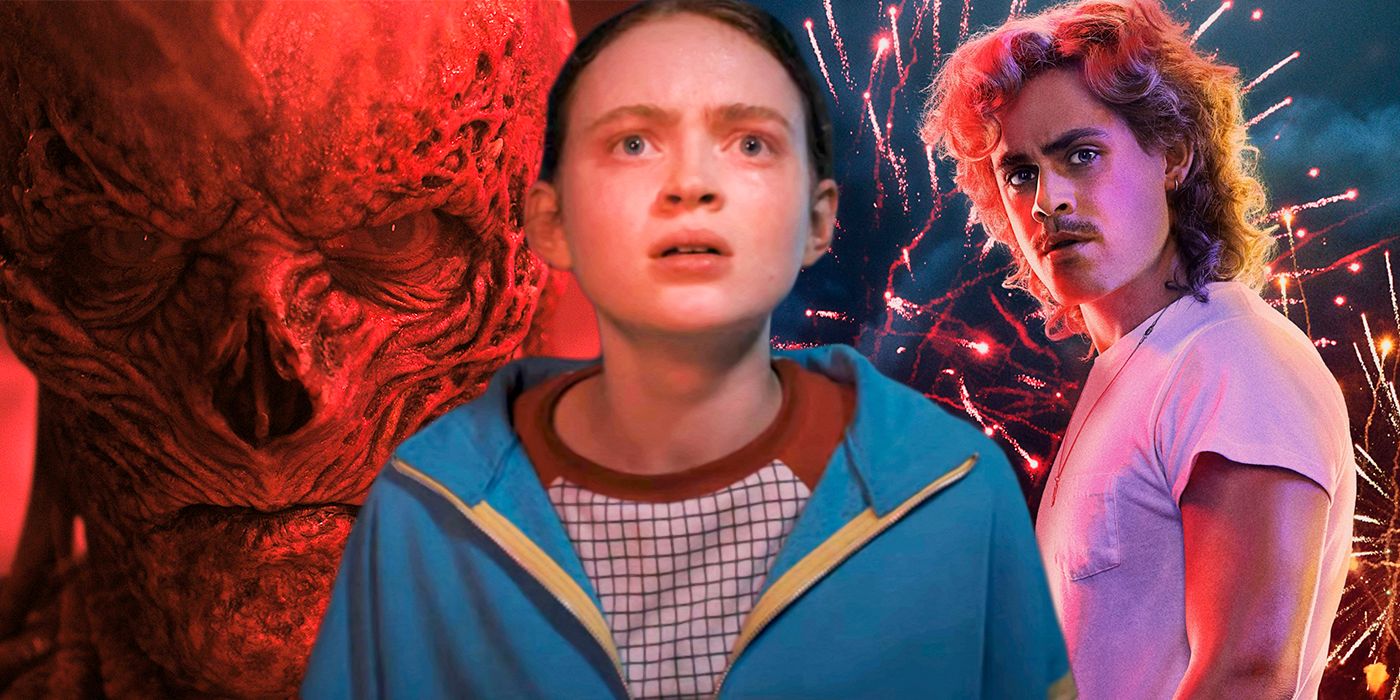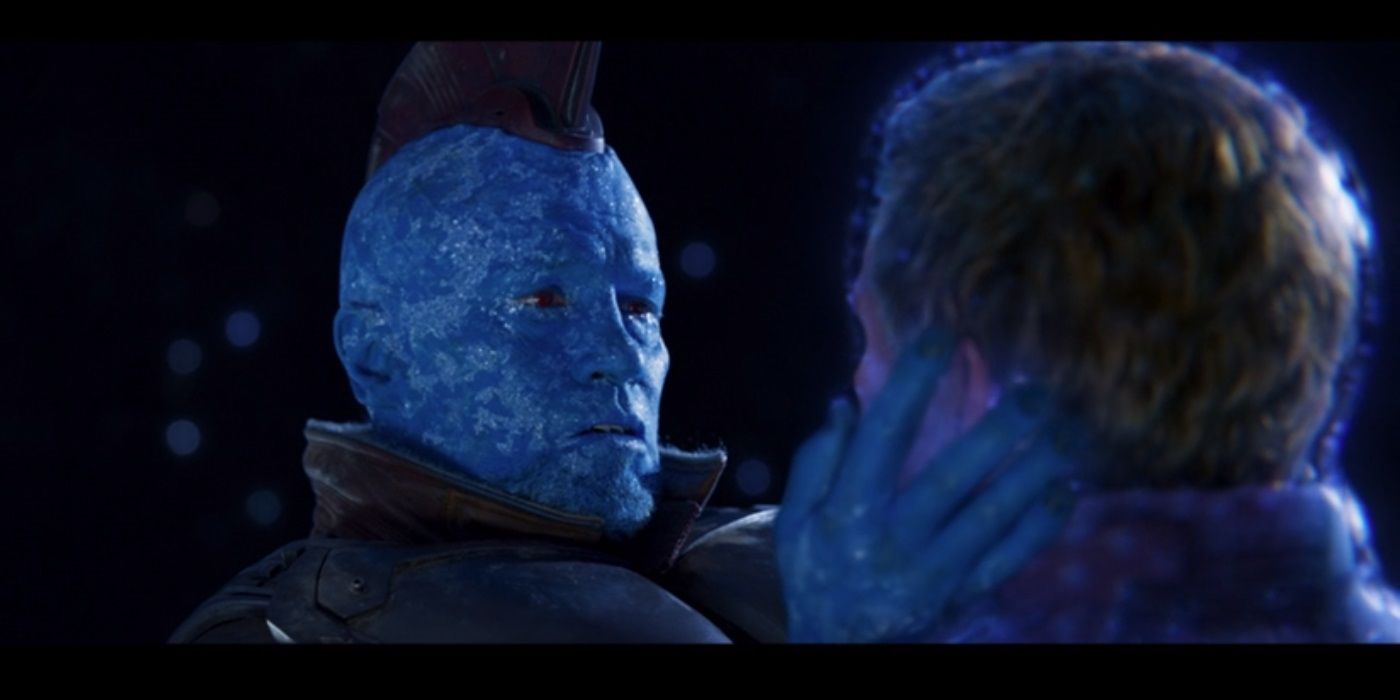The following contains spoilers for Stranger Things Season 4, now available on Netflix.
There is no denying that fans love a good redemption arc, especially when it comes from a compelling villain. This was somewhat the case for Billy in Stranger Things Season 3, as the character was an abusive teen who was a victim of The Mind Flayer and had a rough childhood; however, he was also a racist, violent bully to the kids in Season 2, and his relationship with Max was toxic. Despite this, fans were fascinated by the character — in large part due to Darce Montgomery’s performance, and when the climax of Season 3 came to its end, Billy made the sacrificial play, dying in a heartbreaking scene that stunned many and saved Eleven.
While the focus of that scene was on how Billy made a heroic sacrifice, it almost fell into an all too common trap nowadays, which is a villain, abusive person or toxic individual sacrificing themself and in turn rushing their “redemption” and forcing the main characters to accept them for all their faults, regardless of how complicated their emotions to them were prior. However, Season 3 and more prominently Season 4 of Stranger Things proves this is not the case for Billy, reminding fans and creators that you can have the villain make a sacrificial play for the greater good without ignoring their past wrongdoings, as well as the baggage that comes with a move like this.
What is Pop Culture’s Sacrificial Villain Problem?
The issue is not so much redeemed villains, as it is sacrificial ones. There are many cases where villains, like Zuko, can be redeemed and become a hero, as series like Avatar: The Last Airbender take time to focus on the context of Zuko’s beliefs, his past with his abusive father, the inner turmoil he feels over all three seasons and how the others process his change of heart. That last part is key because the characters, as well as the audience, have seen him at his worst, so just accepting him as is would undermine all that history and development over the course of the series.
This is where the sacrificial villain is a problem. When a villain and/or abuser in film or television sacrifices themself for the greater good, it can feel like a rushed redemption. On top of that, audiences often lose the chance to explore how the heroes feel about what this character has done, as they often accept this one act of heroism as atonement. The Marvel Cinematic Universe in particular has a problem with this, having villains like The Guardians of the Galaxy’s Yondu and Shang-Chi and the Legend of the Ten Rings’ Wenwu kill themselves to help save the loved ones they’ve traumatized for years.
These are not bad villains, let alone characters, but these sacrifices are superficial because those impacted by their past behavior seemingly have to just accept their abusers as redeemed heroes, with the films — at the time of this writing — not really fleshing out how complex those feelings can be. Stranger Things almost made this same mistake, but Season 4 did what so many other sacrificial “redemptions” should do in the future.
What Stranger Things Season 4 Adds to Billy’s Sacrifice
Billy’s sacrifice in Season 3 wasn’t bad. Along with making a sacrifice for the greater good, the season had built up a connection between Billy and Eleven, thus giving his sacrifice more emotional heft. Along with that, he was taken advantage of by The Mind Flayer, so there was also a personal investment in trying to stop this monster. What Season 3 didn’t do yet was explore how this impacted Max, as it left on the note that she had to accept his death as closure in regard to their abusive relationship.
Come Season 4, there is much more story to tell about how Max is processing Billy’s death. While she is grieving over Billy, she also feels guilty over not fully accepting him as a heroic figure. In fact, the pain he put her through prior to his death makes everything more complicated, as she struggled in the past with wanting a healthy relationship with him in some moments and wanting him to vanish altogether in other moments. In fact, the trauma and emotional turmoil she goes through because of Billy is so extreme that she becomes one of the Vecna’s targets, as he can easily manipulate these feelings to his advantage.
Billy wasn’t a good person before The Mind Flayer, and he had his own issues in the past on top of the pain he was going through in Season 3, but that doesn’t negate his terrible actions and behavior in Season 2, and it especially doesn’t negate Max’s feelings about the trauma he’s caused her. Often times a villain’s heroic sacrifice is treated as a redemption, but it can overlook how those they hurt feel in regard to all of this. Billy’s sacrifice was heroic, but he isn’t redeemed, and Stranger Things Season 4 makes that very clear, as those he hurt the most, especially Max, are still dealing with the trauma he’s caused, thus setting up a more nuanced, complex and engaging exploration of Billy’s impact.



